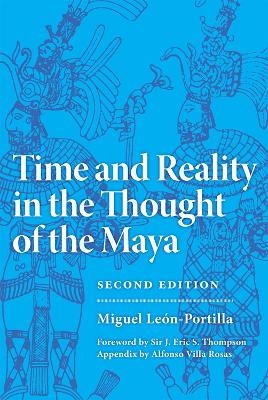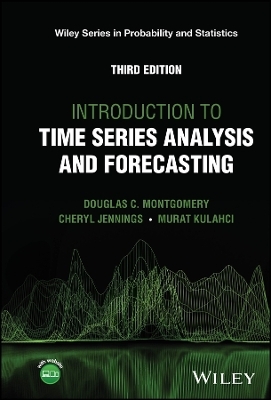
Time and Reality in the Thought of the Maya
Seiten
1990
|
Revised edition
University of Oklahoma Press (Verlag)
978-0-8061-2308-0 (ISBN)
University of Oklahoma Press (Verlag)
978-0-8061-2308-0 (ISBN)
Examines the ancient Maya's obsession with time: they believed a flow of divine time determined man's destiny and their calendars and astronomical computations were replete with time-related myths. The author describes these beliefs and their influence on the life of the Maya.
In this second English-language edition of one of his most notable works, Miguel Le n-Portilla explores the Maya Indians' remarkable concepts of time. At the book's first appearance Evon Z. Vogt, Curator of Middle American Ethnology in Harvard University, predicted that it would become "a classic in anthropology," a prediction borne out by the continuing critical attention given to it by leading scholars.
Like no other people in history, the ancient Maya were obsessed by the study of time. Their sages framed its cycles with tireless exactitude. Yet their preoccupation with time was not limited to calendrics; it was a central trait in their evolving culture.
In this absorbing work Le n-Portilla probes the question, What did time really mean for the ancient Maya in terms of their mythology, religious thought, worldview, and everyday life? In his analysis of key Maya texts and computations, he reveals one of the most elaborate attempts of the human mind to penetrate the secrets of existence.
In this second English-language edition of one of his most notable works, Miguel Le n-Portilla explores the Maya Indians' remarkable concepts of time. At the book's first appearance Evon Z. Vogt, Curator of Middle American Ethnology in Harvard University, predicted that it would become "a classic in anthropology," a prediction borne out by the continuing critical attention given to it by leading scholars.
Like no other people in history, the ancient Maya were obsessed by the study of time. Their sages framed its cycles with tireless exactitude. Yet their preoccupation with time was not limited to calendrics; it was a central trait in their evolving culture.
In this absorbing work Le n-Portilla probes the question, What did time really mean for the ancient Maya in terms of their mythology, religious thought, worldview, and everyday life? In his analysis of key Maya texts and computations, he reveals one of the most elaborate attempts of the human mind to penetrate the secrets of existence.
Director of the Inter-American Indian Institute in Mexico City, Miguel Le n-Portilla is a significant young Mexican scholar. He holds B.A. and M.A. degrees (summa cum laude) form Loyola University at Los Angeles and the Ph.D. from the National University of Mexico. La filosof a n huatl: estudiada en sus fuentes, the Spanish version of this book, received high praise from both Mexican and American scholars.
| Reihe/Serie | Civilization of American Indian S. ; 190 |
|---|---|
| Übersetzer | C. Boiles, F. Horcasitas |
| Zusatzinfo | 6 b&w illustrations, map |
| Verlagsort | Oklahoma |
| Sprache | englisch |
| Maße | 140 x 216 mm |
| Themenwelt | Geschichte ► Hilfswissenschaften ► Chronologie |
| Naturwissenschaften ► Physik / Astronomie ► Astronomie / Astrophysik | |
| Sozialwissenschaften ► Ethnologie | |
| Sozialwissenschaften ► Soziologie | |
| ISBN-10 | 0-8061-2308-7 / 0806123087 |
| ISBN-13 | 978-0-8061-2308-0 / 9780806123080 |
| Zustand | Neuware |
| Haben Sie eine Frage zum Produkt? |
Mehr entdecken
aus dem Bereich
aus dem Bereich
Buch | Hardcover (2024)
John Wiley & Sons Inc (Verlag)
CHF 198,90
In 3 Volumes
Buch | Hardcover (2023)
World Scientific Europe Ltd (Verlag)
CHF 589,95


